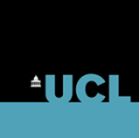Usually the work of several generations is needed to develop that formal system which later is called the style of the art, from its simple beginning to the wealth of elaborate forms... The interest of the artist is concentrated on this crystallization, where the material... takes, through his action, the various forms that are initiated by the first formal concepts of this style. After completion the interest must fade again, because... "interest" means... to be with... to take part in a process of life... [H]ow far the formal rules of style represent that reality of life which is meant by the art cannot be decided from the formal rules.
Werner Heisenberg, Physics and Philosophy: The Revolution in Modern Science (1958)

